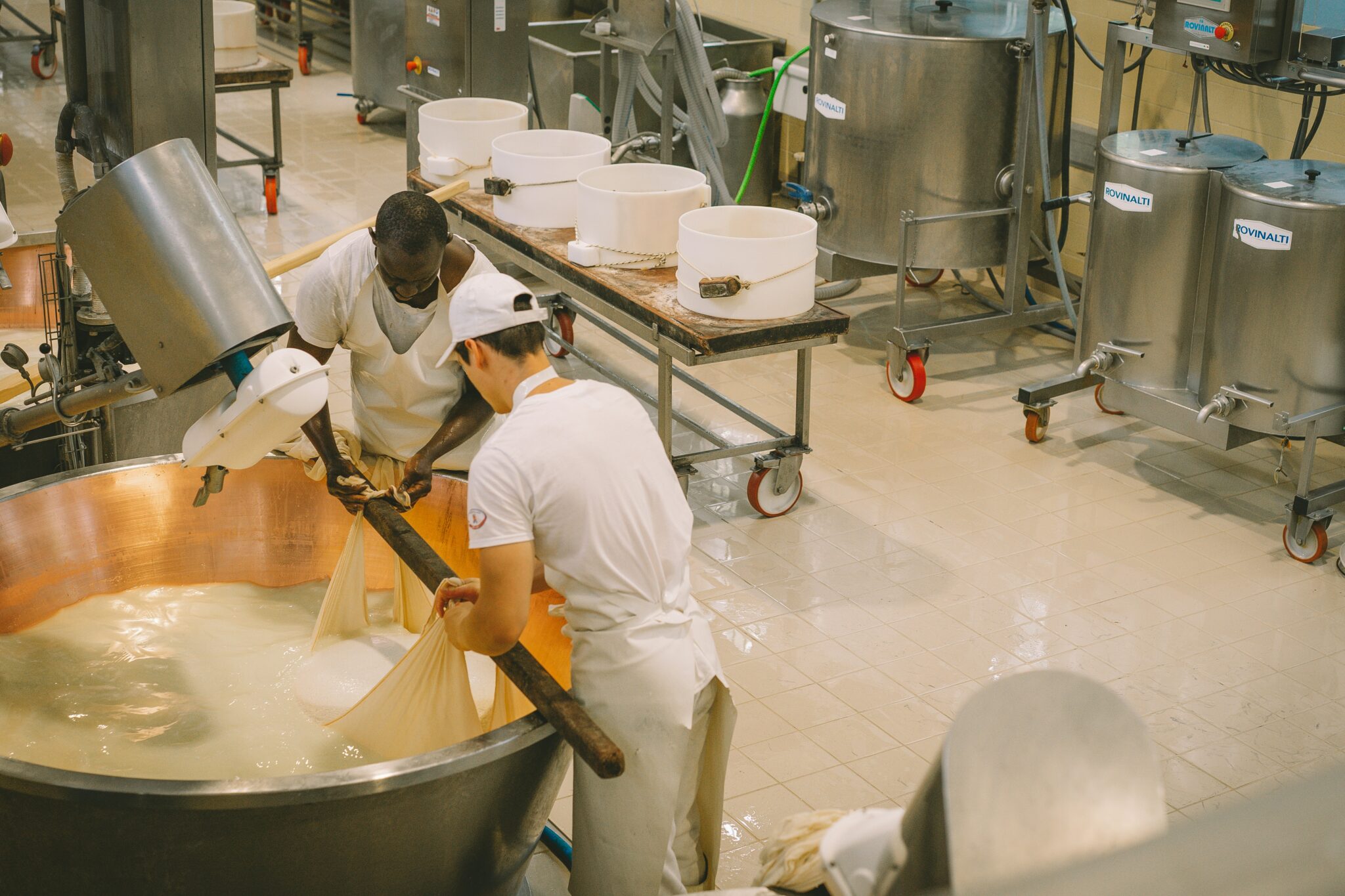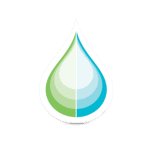Water analysis for farmed fish : feasibility study in Congo
Water quality and parameter monitoring in aquaculture projects
Water quality measurement is a key step starting from the feasibility phase of an aquaculture project. It allows checking the quality of available sources, select suitable sites, and ensure that conditions are met to accommodate the intended species. Monitoring and measuring certain indicators confirms that all requirements are in place before implementation and helps secure the future success of farms.
This case study illustrates how Aqualabo’s ODEON enabled the measurement of essential water parameters in the context of an aquaculture project conducted in Congo.
Supporting aquaculture farm development projects in Congo
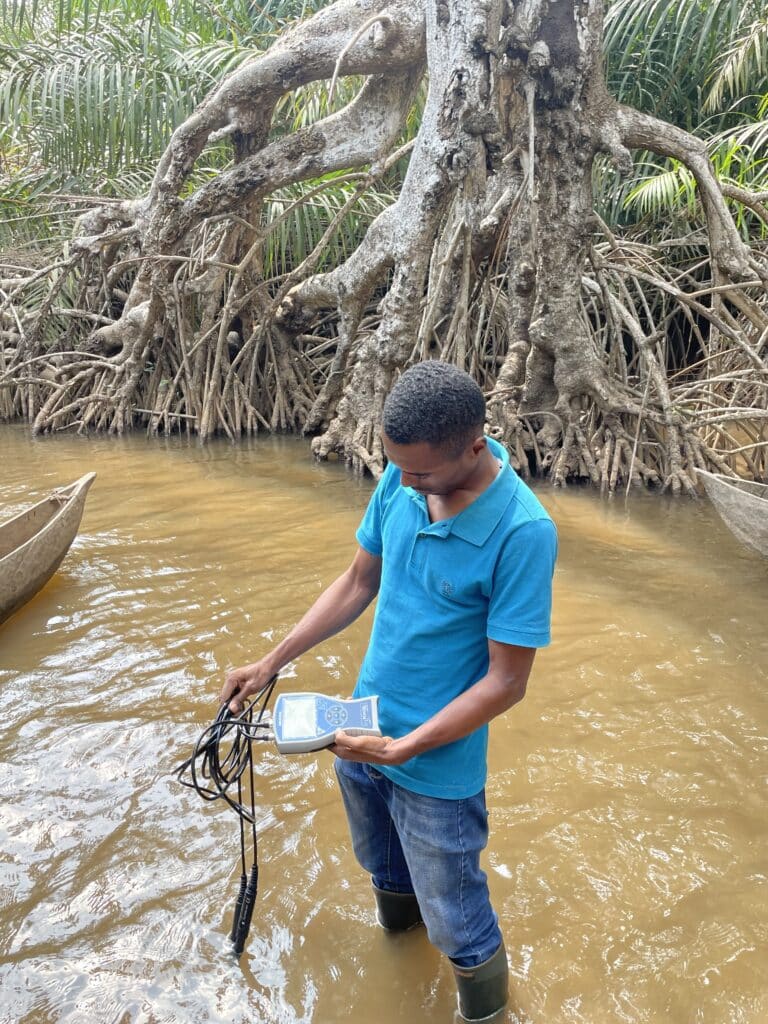
Context and objectives of the aquaculture feasibility study
The Republic of Congo benefits from natural conditions favorable to fish farming. However, production remains limited, with low yields among private farmers and a sector often driven by international projects. This insufficient supply does not meet market demand, keeping prices high. Developing the sector is therefore essential to improve local producers’ incomes and strengthen food supply for both rural and urban populations.
To support this development, a project to establish fish farms was launched in April 2023 in the Kouilou region (Congo). An independent consulting firm, specialized in sustainable fisheries, aquaculture, and regional development, carried out a feasibility study to evaluate the potential of several sites. The project aims to boost local production by improving farming practices while ensuring long-term support for future farms.
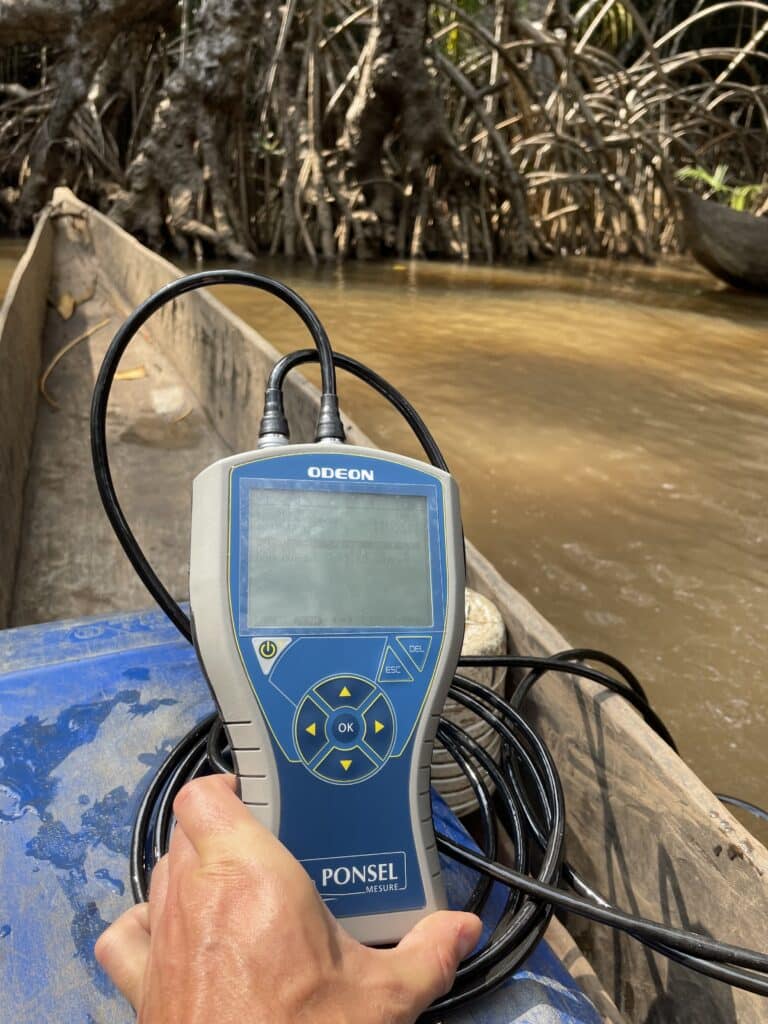
Aqualabo ODEON solution for aquaculture water analysis
In this project, the ODEON was used to determine species suited to production and to measure pH, Redox, temperature, and salinity, both in fresh and salt water. Its portability and versatility made it a key tool for site evaluation. Deployed locally for three years, it will support the regular monitoring of 80 aquaculture farms.
Designed by Aqualabo, the ODEON is a state-of-the-art instrument compatible with a wide range of DIGISENS sensors (pH, Redox, dissolved oxygen, turbidity, TSS, sludge blanket, conductivity, salinity, temperature).
Why monitor water quality for farmed fish?
Water analysis methods for aquaculture parameters
In aquaculture, several parameters must be monitored to ensure favorable farming conditions. Different analysis methods exist depending on needs and field constraints.
- Test strips provide a quick and simple way to check parameters such as pH or ammonia.
- Colorimetric kits deliver reliable on-site measurements.
- Photometers and spectrophotometers offer high-precision analysis, ideal for regular checks in laboratories or treatment plants.
- Digital multiparameter sensors ensure continuous monitoring in ponds or facilities, with real-time data transmission.
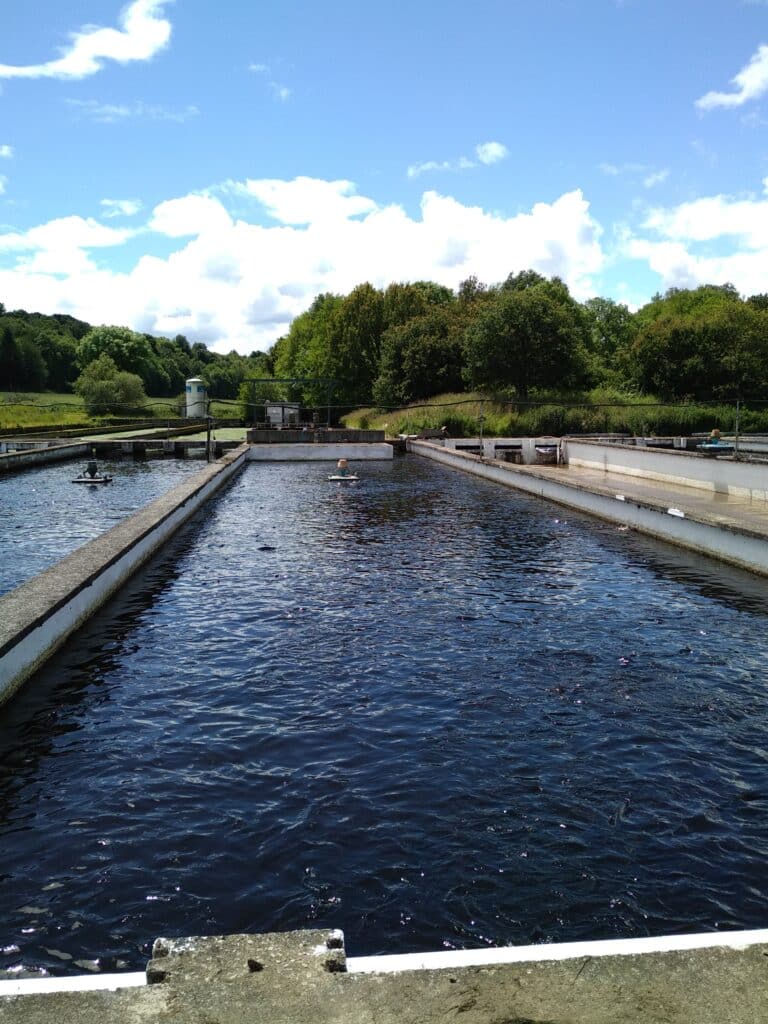
Water analysis for farmed fish : continuous quality monitoring
Once farms are operational, continuous monitoring of water quality remains indispensable and plays a central role in farming success. Poor water quality directly impacts fish health, growth, and disrupts the aquatic balance. Controlling dissolved oxygen levels is essential, but other parameters such as pH, temperature, conductivity, and turbidity must also be closely monitored.
Regular monitoring enables farmers to adapt practices, anticipate imbalances, and ensure consistent production.
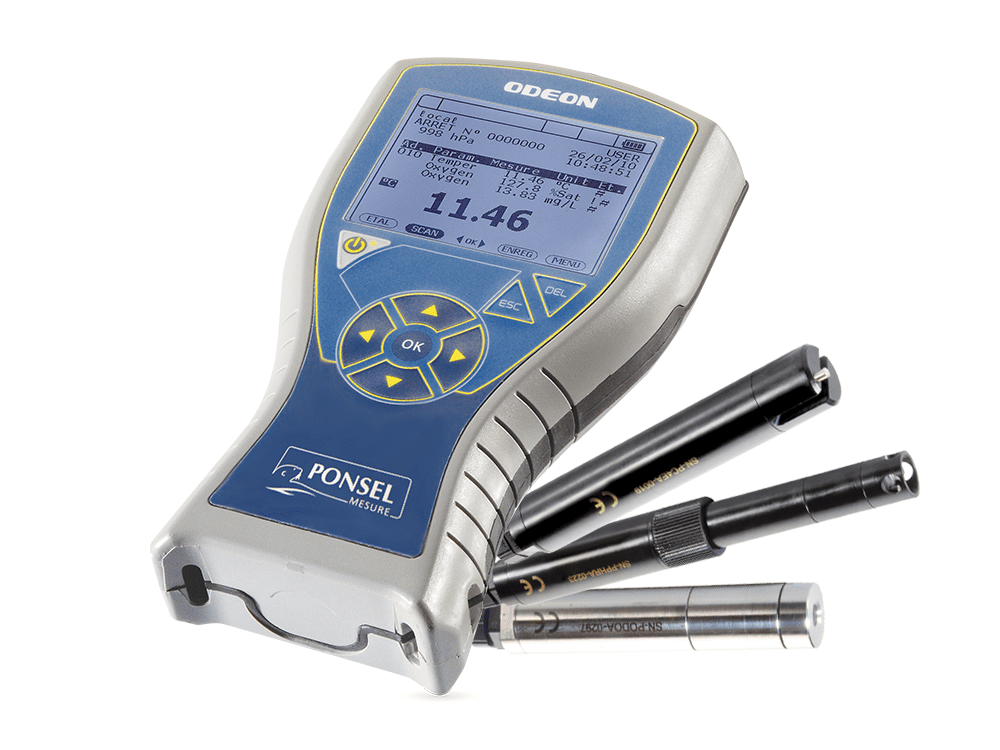
Aqualabo solutions for aquaculture and fish farming monitoring
Aqualabo offers a complete range of instruments tailored to aquaculture needs, whether for online monitoring, pond checks, or laboratory analysis.
These reliable, precise, and user-friendly tools meet the needs of the sector, from small farms to larger marine facilities:
- Digital multiparameter sensors (pH, dissolved oxygen, temperature, Redox, conductivity, turbidity), usable in fresh or salt water.
- Fixed stations: ACTEON 5000, Module 4001.
- Portable multiparameter devices: the ODEON.
- Portable single-parameter devices: the NEON range.
- Standalone connected solution: AquaConnect’.
- Water level and volume monitoring: sensors and systems designed for aquaculture.
- Customizable rapid analysis kits: reagent sets for field measurements (oxygen, ammonia, nitrites, etc.).

